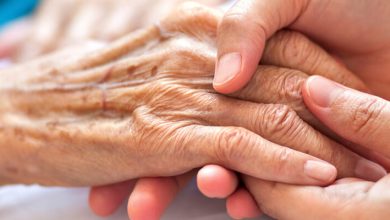Health
Can CBD Oil Help Insomnia?

There are two major cannabinoids in cannabis; cannabidiol (CBD) and tetrahydrocannabinol(THC). Both cannabinoids are considered analgesics. However, CBD does not promote the same drowsiness or sleep-like stupor that THC does. cbd oil is an analgesic purely in the sense that it can relax muscles and provide pain relief, but it does so without sedating the user.
As one of the few compounds that can effectively combat THC’s psychoactive effects, CBD actually incites alertness and wakefulness. It’s the only way it can complement (and successfully cancel out) the euphoric state brought about by a THC-induced “high.”
However, recent studies exploring the relationship between CBD-rich extracts and insomnia have come to light. Their particular focus is on the possibility of cbd oil as a novel aid for insomnia—despite its stimulant-like characteristics.
CBD as a Stimulant
In modest doses, CBD oil can actually be mildly alerting. This is due to the fact that CBD can trigger the body’s adenosine receptors. These receptors can either stimulate or slow down neural activity. When the latter happens, the person in question starts to feel sleepy or drowsy. When neural activity speeds up, the person cannot help but stay alert.
Because it stimulates neural activity, one can argue that CBD is a stimulant. However, one study published in 1981 looked into the apparent “hypnotic” effects of cannabidiol. Out of 15 insomniac volunteers, those that received 160mg of CBD reported have slept “significantly more” than those that received a placebo.
A similar, more recent study published in 2006 pointed out how CBD supposedly regulates and modulates sleep. Therefore, it’s entirely possible that CBD can trigger the adenosine receptors toboth stimulate and dampen neural activity.

The Role of the Endocannabinoid System
Another possible connection between CBD and insomnia lies in the endocannabinoid system. This biological system is actually responsible for regulating our sleep pattern and circadian rhythm. As the name suggests, it is composed of—and therefore interacts with—cannabinoids. As a result, CBD oil can directly and more effectively impact this system.
CBD Oil, Not Edibles
Given the readily-available data and the case studies, it looks like CBD can indeed help insomniacs—to a degree. It’s important to note, however, that not every form of ingestible CBD may induce the same effect.
For instance, another study on the potential of cannabis as a sleep aid was recently conducted. Participants that ingested CBD-rich extracts or tinctures—such as CBD oil—two hours before they feel asleep reported better, more restful sleep overall. On the other hand, participants who ingested CBD raw or took CBD-infused edibles reported zero change in their sleep cycle. Participants who also took higher doses of CBD did not enjoy deep, restfulsleep, either.
CBD Oil & Insomnia: The Verdict
In regulated doses, CBD oilmay indeed promote longer and far more restful sleep. As an added bonus, it comes with virtually no adverse side-effects. However, the form it’s in and the time it’s taken are two very crucial factors that hopeful insomniacs must keep in mind.





